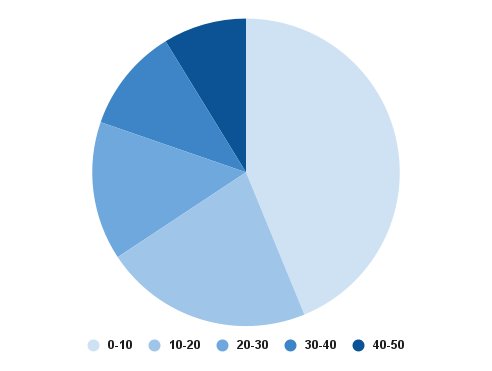The Speed of Time
Why does time feels that it's getting faster as we age?

If you're over a certain age, you've probably noticed that time seems to be passing faster and faster.
I was born in 1973, and while I don't remember much of the 70s, I can tell you that they went on for quite a long time, even though I was only alive for seven of those years, and I have almost no memories of the first three or four (though I do have some images of scenes where I must have been two or three, the oldest ones are from when I was four, and I have quite a few after that). The 80s also seemed to go on forever; years and years in school, sitting at those old wooden desks, listening to dozens of teachers. The 90s were wild and lasted long enough for all the crazy (and some tame) things I did back then. The 2000s were full of major life changes, but they went by relatively quickly when you think about it. Same with the 2010s, it seems like just a few years ago my daughter was a baby and now she's a teenager. And the 2020s? What? It's 2025 already? But 2020 was just last year, right?
You know the feeling.
Why is that?
You have probably asked yourself this question, and you may even know some answers.
No, the astrophysical side of the topic has nothing to do with it (at least I hope it doesn't, on the contrary, shouldn't time slow down as the universe cools down? no idea).
Yes, there are some neurological reasons. The more our brains learn new things, the slower time feels. And the younger we are, the more we learn and record new memories and experiences, so younger years feel longer.
But there is another factor that I really like, and I think we can notice it when we stop for a minute and really think about it.
The way we perceive time is highly subjective, and all in all we always perceive our life as a unit of time. I'm 52 years old as I write this, and for me 52 years is 100% of my life. Meanwhile, the 13 years of my daughter's life so far are 100% of her life up to this point.
So one year is 1.92% of the unit of time called "my life", while the same year is 7.69% of the unit of time called "my daughter's life". So 2024 lasted about four times longer for my daughter than it did for me.
And that's the basic reason why the older we are, the shorter a year feels.
And this perception obviously affects our memories, so if a year seemed to last forever when we were kids, that same year will last forever in our memories, regardless of how much we remember about what happened during that year. So basically, when we look at the chronology of our lives, childhood always seems to last a lot longer than it actually did, and our teens and twenties seem to last quite a long time too.
Let's pretend I'm only 50 for a second (no, I'm not trying to make myself younger, I'm just trying to simplify the math) and ignore the fact that I have no memory of the first few years of my life.
My life can be divided into something like this, with each decade being a slice of the pie.

Note that this is an approximation. I arbitrarily decided that each year of the first decade would feel like 10% of my life during that decade (only true at age 10), each year of the second decade would feel like 5% of my life (only true at age 20), and so on. Of course, I'm not taking into account the fact that I have no memory of my early years, and that people don't begin to grasp the concept of time until about age 5 or so (it depends on the person, I guess).
If you want a chart that's a bit more mathematically accurate, I have this one (where year one feels like 100%, year two feels like 50%, year three feels like 33.33%, and so on):

But I don't like it that much, because it gives way too much importance to the first ten years, and especially to the first three years that we don't remember.
And if we take those first three years out of the picture, we get results that are not really different from the first pie.
I don't know if childhood feels like about 40% of my life in my memory, but the other decades feel about right (with a caveat I'll explain below): each shorter than the one before, but with a smaller and smaller difference as we go along.
What do you think?
Caveat: Of course, the neurological explanation is not to be dismissed. And in fact, my twenties were much more eventful than my childhood or teenage years, and yes, in my personal chronology, I feel that the 90s lasted a little longer than, say, the 80s.
Before we end, I would like to return to the first three years of our lives, which I so casually dismissed earlier. Babies and toddlers don't have a conscious concept of time, but they have to sense it, right? I mean, if you've ever been around an infant, you know how impatient they can be. And indeed, time must be very slow for them. What about babies? And newborns? Does time feel almost infinite to them? Or is their brain not yet developed enough to really perceive it?
I wonder if some scientists know the answers, or at least have some theories. Probably yes. I want to look for them, but I'm afraid it's a rabbit hole where I can get lost for hours....

